Badi Soch: ‘One Nation under God’ and above all?
This daily column includes Gateway House’s Badi Soch – big thought – of the day’s foreign policy events. Today’s focus is on Washington' s phone and email spying programme-PRISM.

This daily column includes Gateway House’s Badi Soch – big thought – of the day’s foreign policy events. Today’s focus is on Washington' s phone and email spying programme-PRISM.
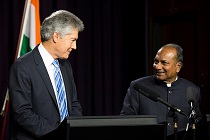 Courtesy: Australian Government Department of Defence
Courtesy: Australian Government Department of Defence
Defence Minister A. K. Antony’s visit to Australia this week was a significant step forward in the defence relationship. In coming years an India-Australia partnership will be important for managing maritime security in the Indian Ocean and will also have implications for security in Southeast Asia and the Pacific
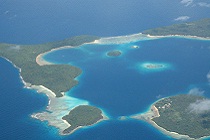 Courtesy: Jessica Taekman/Flickr
Courtesy: Jessica Taekman/Flickr
Indian Prime Minister Manmohan Singh and Japan’s Shinzo Abe are giving heft to a renewed partnership and a focus on the Indo-Pacific. Both nations must collaborate and work with South Pacific countries, especially Tonga, to counter China’s growing influence in this increasingly geopolitically important region
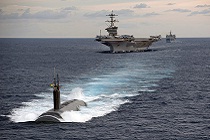 Courtesy: U.S.Navy Imagery/Flickr
Courtesy: U.S.Navy Imagery/Flickr
An understanding between China and India not to develop a permanent presence on each other’s maritime territories may be helpful in reducing tensions between the two navies. Given the broader context of Sino-Indian strategic rivalry, however, this seems unlikely.
 Courtesy: Furmeyer/WikimediaCommons
Courtesy: Furmeyer/WikimediaCommons
Maritime piracy is one of the several grave security issues faced by today’s world. This problem, however, isn’t a new phenomenon, and nations have long-battled this issue. How did piracy manifest itself in the Indian Ocean in the 19th century, and what was the nature of counter-piracy efforts during that period?
In the past few years, the political map of Antarctica, a region rich in mineral-fuel resources, has changed immensely. How can the ongoing geopolitical polarization in this region have unfavourable global effects in the long run?
 Courtesy: trendscout::/Flickr
Courtesy: trendscout::/Flickr
All the major economic forces in the world have come together in Africa in a new version of the Great Game. The competition for the continent’s resources will ultimately harm Africa unless Africa uses this opportunity to its advantage and to address its own serious problems.
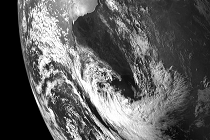 Courtesy: ridingwithrobots/Flickr
Courtesy: ridingwithrobots/Flickr
Though India’s approach to space has been pragmatic, it is hindered by a lackadaisical approach by policymakers. India must recognize the stagnancy and myopia of its space program and come up with a long-term vision.
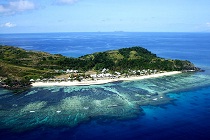 Courtesy: mpeacey/Flickr
Courtesy: mpeacey/Flickr
Traditionally, the South Pacific islands have been considered strategically insignificant. However, the need for resources, and the geopolitical shift towards Asia-Pacific have prompted nations to realize that these small island states control large resource-rich ocean areas and are increasingly geostrategic.
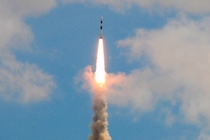 Courtesy: PIB
Courtesy: PIB
If its space assets are used effectively, India could have a formidable fleet of five to 10 satellites dedicated for military use and dozens more for the advancement of its economy.